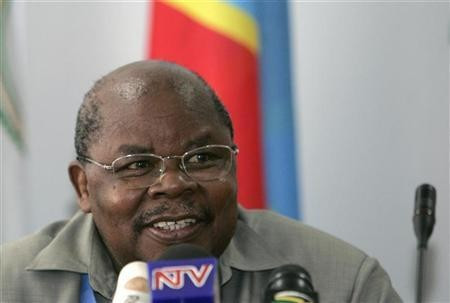Burundi: International donors forced to chip in as lack of funds impede peace talks
Talks to end Burundi crisis which has rocked the country for around 18 months have stalled.
The East African Community (EAC) has had to accept extra funding from international donors including China, Switzerland and the European Union after it was forced to call off the Burundi peace talks.
After months of painstaking mediation stalling due to the reluctance of the Burundian government and opposition to participate in peace talks, the issue of national dialogue on the Burundi crisis which has rocked the country for just under 18 months remains in the lap of the EAC.
The regional organisation has, however, so far failed to secure a sustainable peace agreement between the warring parties, and the facilitator, former Tanzanian president Benjamin Mkapa, was forced to call off meetings five times due to lack of funds.
In August, representatives of the EAC reiterated concerns over the worsening diplomatic relations between neighbours Burundi and Rwanda, warning that the growing political tensions could jeopardise the stability of the region.
The five partner states – Burundi, Kenya, Rwanda, Tanzania and Uganda – ratified the EAC Protocol in 2010, effectively establishing a common market and, in 2014, the Protocol on Peace and Security, aimed at bolstering cross-boundary security and stability in the region.
EAC considering funds from China and EU
It has now emerged that the EAC is considering an additional budget for the peace talks after receiving support from donors including China, Switzerland and the European Union, according to The East African.
The EAC's Secretariat received $200,000 (£153,321) from the Chinese government as a donation to support the dialogue. "The council directed that the money be utilised for the all-inclusive dialogue activities under the office of the facilitator," a report of the EAC Council of Ministers stated last week.
Facilitator Mkapa, meanwhile, urged the EAC to commit its own funds to ensure the talks can resume, instead of relying on international donors and organisations, in order to give the talks credibility.

"One of the nagging challenges that our facilitation efforts are forced to grapple with every time we organise the session, is the issue of finance. We have been almost entirely depending on the generous support of the EU and China," Mkapa told the leaders during the 17th EAC Heads of State Summit last week.
"I feel the need for your excellences to consider providing more reliable financial wherewithal now that we are going to the mediation phase."
Painstaking negotiations
Last week, Mkapa urged leaders at the summit to crack the whip on the parties in the talks to ensure their co-operation.
The bloody crisis that has killed up to 900 people in the country pits supporters of President Pierre Nkurunziza against those who say his re-election in July 2015 for a third term violated the constitution. After a failed coup in May, the government intensified its crackdown and most of those arrested or missing are young men and women accused of participating in or supporting opposition groups.
Hopes of any progress were quashed in May when the government of Bujumbura refused to hold talks with key members of the umbrella National Council for the Restoration of Arusha Agreement and Rule of Law (CNARED) and a major civil society movement known as Halte au 3e mandat.
Both opposed Nkurunziza's bid for a third-term in office. At the time, the regime agreed to attend peace talks in Arusha in which only government officials, two former heads of state and a selection of like-minded individuals participated in an exchange with mediators.
Uganda's President Yoweri Museveni is the official mediator of the dialogue, although the regional bloc assigned Mkapa, who was Tanzania's president between 1995 and 2005, to host the talks in March.
© Copyright IBTimes 2025. All rights reserved.






















